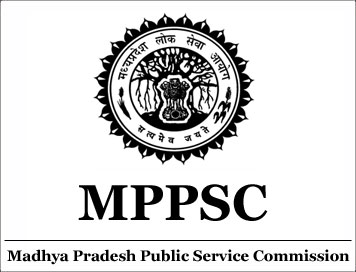(FREE) UPSC Current Affairs 2025 PDF
NEW! The Gist (SEP-2025) | E-BOOKS
(Download) MPPSC : State Service Main Exam Paper -4 (2018)

(Download) MPPSC : State Service Main Exam Paper -4 (2018)
Section-A
1. Give answers of the following short answer-type questions in 1 or 2 lines each :
(a) Explain the meaning of integrity in public administration.
(b) What is the basis of public utility services in public administration?
(c) What do you understand by 'conscience' as source of ethical guidance?
(d) What are the three golden, paths according to Buddha? Point out.
(e) Point out any six vows out of the eleven vows told by Gandhiji.
(f) Name the authors of the following books
(i) Ramcharitmanas
(ii) The Religion of Man
(iii) The Life Divine
(g) Who were the two founders of Brahma Samaj?
(h) Explain the meaning of 'impartiality' in public service.
(i) Define 'aptitude' as an internal attitude determinant.
(j) Clarify the role of 'intelligence' in public service.
(k) Explain the place of beliefs' in attitudinal change.
(I) What do you understand by tolerence?
(m) "Public administration is an agent of social change." Explain this statement.
(n) Clarify the jjurport of Benami Sampatti (property) in India.
(o) According to the Right to Information Act, 2005, under the normal circumstances, in how, many, days the public information officer is obliged to provide information?
Printed Study Material for MPPSC
2. Write the answer of any fifteen questions from the following. Each answer should be limited up to 150 words
(a) Analyze the main provisions of the code of conduct for civil servants.
(b) "Administration is a moral act and the administrator is a moral agent.Discuss this statement.
(c) "I slept and dreamt that life was beauty. I woke and found that life was duty." Elucidate E. S. Hooper's couplet in respect of duty of civil servants.
(d) Point out five moral principles (Panchmahavratas) of Vardhamana Mahavira.
(e) Write coniments on social, consciousness in the poetiy-of Tulasidas.
(f) Throw light on the elhical points of Gemdhiah philosophy.
(g) Describe .the contribution of Raja Ranimohan Roy as a social reformer.
(h) Write comments on 'humanism' of Rabindr^ath Tagore.
(i) Clarify the views of Ram Manbhar Lohia regarding sociaUsm.,
(j) What are the determining factors of attitude formation? Discuss.
(k) Explain the concepts of stereotyping and prejudice in Indian context.
(l) "Broadly viewed motivation is the problem of determining the forces which impel or incite all living organisms to action." In the light of this statement, given by famous psychologists Boring and Langfield, explain the role of inspiration in changing attitude.
(m) Throw light on the importance of empathy as one of the basic values for civil service.
(n) "The ideal administrative expectations ensure aptitude of dedication to public service." Write comments on this statement.
(o) Describe the concept of 'emotional intelligence' and point out its importance.
(p) Give a brief account of main kinds of corruption. What are the main causes of corruption? Point out.
(q) Give suggestions for prevention of .corruption in public life.
(r) Describe United Nations Convention on Corruption.
3. Case studies based on contents of syllabus :
(a) First Case Study :
Subject : Predicament in Examination System
You are a Director of some State Secondary Education Board. Board has conducted the Physics examination of class twelfth. A week after the examination by some source it comes to your knowledge that there could have been a paper leak before the starting of the examination done by a collusion of some school and coaching centre. After some preliminary investigation, you get a conclusive proof that indeed the paper was leaked. Gradually the news came into public and also was published in newspapers. Board decided to conduct a reexamination of Physics paper.
Answer any two questions in the light of above mentioned case study ;
(i) What are the reasons behind such paper leak?
(ii) What implications such incidents have on the system and students?
(iii) As a Director, what measures. would you take to prevent such incidents from happening again?
(b) Second Case Study :
Subject ; Public service and conflict of ethical values
A poor aged woman abandonned by her family meets her ends by selling flowers on a roadside shop. In spite of her circumstances she is a very cheerful and mother-like figure. You are an SDM and everyday you yourself, go to her shop and purchase flowers from her. Declaring that region as TSfo Tolerance Zone' the DM instructs you to demolish all illegal constructions as soon as possible. The woman cries for her helplessness. By emotions, the locals too request you to exempt her shop.
Answer the follovsdng questions in the light of above mentioned case study :
(i) Would you exempt the woman's shop?
(ii) In respect of their request, what would you reply to the locals?
(iii) Which values would be in question, if you decide to exempt her shop?
(iv) Which values would be in question, if you decide to demolish her shop?
(v) Mahatma Gandhi believed that "a nation's greatness is measured by how it treats its weakest members". On account of the given statement, what, according to you, are the nation's responsibilities towards its fragile populace?
Printed Study Material for MPPSC
<<Go Back To Main Page

